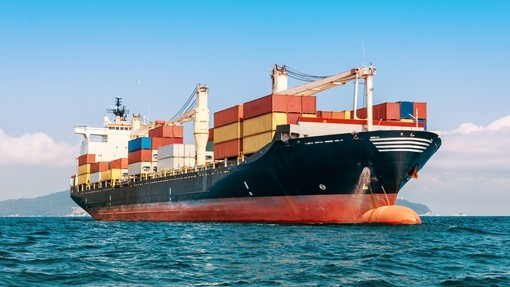Sea Master Shipping Inc -v- Arab Bank (Switzerland) Limited (The “SEA MASTER”) [2018] EWHC 1902 (Comm)

Details
The Commercial Court in this case considered an application brought by the owners of the MV “SEA MASTER” under section 67 of the Arbitration Act 1996 challenging the tribunal’s decision that it lacked jurisdiction over Arab Bank (Switzerland) Limited (the ‘bank’), the lawful holder of a bill of lading with rights of suit under section 2 of the Carriage of Goods by Sea Act 1992 (COGSA) in respect of a contract of carriage contained in or evidenced by the bill of lading.
Factual background
On 24 June 2016, 7000 metric tonnes of soyabean meal in bulk was shipped on board the vessel MV “SEA MASTER” at San Lorenzo, Argentina. The cargo was one of a number shipped on the vessel by Oleaginosa Moreno Hnos. S.A.C.I.F.I.Y.A. (Oleaginosa), who then sold it on FOB terms to Glencore Grain BV (Glencore), who in turn sold it on FOB terms to Agribusiness United DMCC (Agribusiness). On 25 April 2016 Agribusiness concluded a voyage charterparty on an amended Norgrain 89 form with the owners, the claimants in these proceedings, providing for carriage from Argentina to Morocco. The charter incorporated by reference a provision for London arbitration on the terms of the applicable LMAA clause, which covered ‘any dispute arising out of or in connection with this contract’.
The cargo was originally covered by seven bills of lading numbered 12 to 18 on the Congenbill 2007 form, providing for discharge at ports in Morocco. The bills named Oleaginosa as the shipper and expressly incorporated the charterparty arbitration clause. Agribusiness’ original sale fell through, so it entered into two new sale contracts with new buyers (the first of which also failed) which provided for payment to be made to Agribusiness by presentation of documents, including bills of lading, under a letter of credit. At this stage the bills of lading had been presented by Glencore to the bank and accepted under the documentary credit opened on behalf of Agribusiness. On 27 July 2016 the bank paid against the bills of lading and became their lawful holder. As security, the bank and Agribusiness had entered into a pledge agreement which assigned to the bank all rights arising from the documents of title in relation to goods financed by the bank, including bills of lading.
The second new sale contract was on CIF Lebanon terms; therefore, it was necessary for Agribusiness and the owners to agree upon a variation to the charterparty and the issue of a switch bill of lading for the entire cargo, to reflect the new discharge port. On 7 November 2016 an addendum to the charterparty was signed and on 8 November 2016 a switch bill was issued at the counters of the bank against cancellation of the original bill of lading. The switch bill incorporated the charterparty arbitration clause. The switch bill was eventually accepted under the CIF contract and the cargo was delivered. On 22 March 2017 the bank commenced arbitration proceedings against the owners in respect of claims under 10 bills of lading relating to other cargo on board the vessel (a shipment of corn). The owners brought a counterclaim against the bank for demurrage and/or damages for detention under the switch bill. The arbitration tribunal decided that the bank was not a party to the agreement to switch the bills of lading and rejected the arguments that the bank had a) become party to the bills; b) demanded delivery of the cargo and; c) made a claim against the vessel under the contract of carriage so as to incur liabilities under section 3 of COGSA. Thus, the tribunal held that it did not have jurisdiction to determine the owners’ counterclaim.
The owners applied to the High Court to set aside or vary the arbitration award under section 67 of the Arbitration Act 1996. They claimed that the bank was the original party to the switch bill. The bank recognised that it became the lawful holder of the switch bill, to protect its security interest and contended that although, it had vested in it rights of suit as if it were a party to the contract of carriage contained in or evidenced by the bill pursuant to section 2 of COGSA; it had not performed any of the acts triggering liability under section 3 of COGSA. It argued that it was not bound by the arbitration clause and the arbitration tribunal was correct to hold that it had no jurisdiction. In determining the jurisdictional challenge, the court followed a different approach and asked the question whether the bank was party to the arbitration agreement because it had acquired rights under section 2 of COGSA.
Legal issues
The starting point for the Court’s decision was the principle that an arbitration agreement has a separate and independent existence from that of the matrix contract in which it is found. This is known as the ‘doctrine of separability’ and according to Mr Justice Popplewell, it follows from this that ‘one could not assume that a statute such as COGSA which addresses the substantive rights and obligations of the parties under a matrix contract intends to treat the rights and obligations under the ancillary arbitration agreement in precisely the same way’. Obligations under an arbitration agreement arise not upon the exercise of rights of suit or pursuit of the arbitral proceedings by either party, but upon a prior event, namely the coming into existence of an arbitral dispute. However, one categorises the bundle of rights, obligations or options in an arbitration agreement, they are mutual and independent.
In applying these principles to section 2 of COGSA and the particular facts of this case, the Court was unable to accept that the intended effect of section 2 and 3 of COGSA is to bifurcate an arbitration clause in the contract of carriage contained in or evidenced by the bill of lading into rights and obligations, such as to confer arbitration rights under section 2 and arbitration obligations under section 3 of COGSA. In general, section 2 of COGSA involves a lawful holder becoming a party to the arbitration clause in the contract of carriage contained in or evidenced by the contract of carriage because the section treats him as if he had been a party to that contract. The holder is a party to that separate arbitration agreement, with all the consequences which flow from such agreement, including the mutual obligation to have any dispute falling within the scope of the agreement determined in arbitration, irrespective of whether it owes any substantive obligations under the matrix contract contained in the bill.
The Court decided that where the contract of carriage specifically provides for the resolution of disputes in arbitration, and where the clause is drawn in wide terms covering disputes ‘arising out of or in connection with’ the contract of carriage, all disputes in relation to the maritime venture between the owners and those interested in the cargo, will be subject to the single defined dispute resolution mechanism. Mr JusticePopplewell commented that it would be contrary to the reasonable expectation of businessmen and to the presumption in favour of one-stop adjudication if the rights and obligations under the arbitration agreement could be separated in a way which confined the obligation on a party to arbitrate as arising only when and if rights under the matrix contract were asserted by that party. The section 67 application succeeded and it was held that once party to an agreement to arbitrate, the extinguishment of rights under the matrix contract does not affect the arbitration agreement, which remains applicable to disputes falling within its ambit.
Comment
This case provides an interesting perspective on the effect of COGSA on challenges to arbitral jurisdiction and clarifies the nature of the rights and obligations of a bill of lading holder. Mr Justice Popplewell’s decision may come as a surprise to parties who regularly hold bills of lading as security and should operate as a reminder that doing so may make them subject to the jurisdiction of an arbitral tribunal formed under an arbitration agreement contained in or evidenced by the bill of lading even if they have not sought to exercise any rights under the bill.
The Court’s ruling in this case contradicts the analysis of Aiken J in The Ythan [2006] 1 Lloyd’s Rep 457 that an intermediate bill of lading holder is not under any obligation to arbitrate unless it is subject to the liabilities under the bill of lading under section 3 of COGSA or it seeks to make a claim against the owner falling within the terms of the bill of lading’s arbitration clause. However, as Aiken J’s analysis was only obiter, Mr JusticePopplewell’s decided the issue as a matter of ratio and it will be interesting to see which rationale will be followed if this decision is appealed.
This article originally appeared in the August 2018 edition of shipping case digest. Other articles include:
Deep Sea Maritime Ltd -v- Monjasa A/S The ”ALHANI” [2018] EWHC 1495 (Comm)






